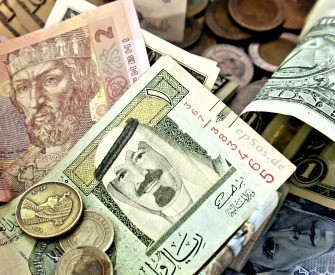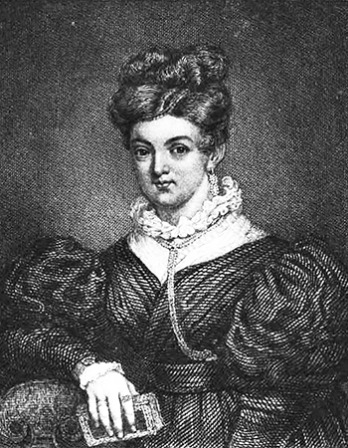We had already been four days in the city of Mexico, and neither our commander nor any of us had during that time left our quarters, except to visit the gardens and buildings adjoining the palace.
Hernán Cortés now, therefore, determined to view the city and visit the great market and the chief temple of Huitzilopochtli. He accordingly sent Geronimo Aguilar, doña Marina, and one of his pages named Orteguilla, who by this time understood a little of the Mexican language, to Montezuma to request his permission to view the different buildings of the city. Montezuma, in his answer to this, certainly granted us permission to go where we pleased, yet he was apprehensive we might commit some outrage to one or other of his idols. He therefore resolved to accompany us himself, with some of his principal officers, and, for this purpose, left his palace with a pompous retinue. Having arrived at a spot about halfway between his palace and a temple, he stepped out of his sedan, as he would have deemed it a want of respect toward his gods to approach them any other way than on foot. In this way, he came up to the temple, which he ascended, in company with many papas. On reaching the summit, he immediately began to perfume Huitzilopochtli and to perform other ceremonies.
Our commander, attended by the greater part of our cavalry and foot, all well armed, as indeed we were at all times, had proceeded to the Tlatelolco. By command of Montezuma, a number of caciques had come to meet us on our road there. The moment we arrived in this immense market, we were perfectly astonished at the vast numbers of people, the profusion of merchandise that was there exposed for sale, and at the good police and order that reigned throughout. The grandees who accompanied us drew our attention to the smallest circumstance and gave us full explanation of all we saw. Every species of merchandise had a separate spot for its sale. We first of all visited those divisions of the market appropriated for the sale of gold and silver wares, of jewels, of cloths interwoven with feathers, and of other manufactured goods, besides slaves of both sexes. This slave market was upon as great a scale as the Portuguese market for Negro slaves at Guinea. To prevent these from running away, they were fastened with halters about their neck, though some were allowed to walk at large. Next to these came the dealers in coarser wares—cotton, twisted thread, and cacao. In short, every species of goods that New Spain produces were here to be found; and everything put me in mind of my native town, Medina del Campo, during fair time, where every merchandise has a separate street assigned for its sale. In one place were sold the stuffs manufactured of henequen, ropes and sandals; in another place, the sweet maguey root, ready cooked, and various other things made from this plant. In another division of the market were exposed the skins of tigers, lions, jackals, otters, red deer, wildcats, and of other beasts of prey, some of which were tanned. In another place were sold beans and sage, with other herbs and vegetables. A particular market was assigned for the merchants in fowl, turkeys, ducks, rabbits, hares, deer, and dogs; also for fruit sellers, pastry cooks, and tripe sellers. Not far from these were exposed all manner of earthenware, from the large earthen cauldron to the smallest pitchers. Then came the dealers in honey and honey cakes, and other sweetmeats. Next to these, the timber merchants, furniture dealers, with their stores of tables, benches, cradles, and all sorts of wooden implements, all separately arranged. What can I further add? If I am to note everything down, I must also mention human excrements, which were exposed for sale in canoes lying in the canals near this square and used for the tanning of leather; for according to the assurances of the Mexicans, it is impossible to tan well without it. I can easily imagine that many of my readers will laugh at this; however, what I have stated is a fact, and as further proof of this, I must acquaint the reader that along every road, accommodations were built of reeds, straw, or grass, by which those who made use of them were hidden from the view of the passersby, so that great care was taken that none of the last-mentioned treasures should be lost. But why should I so minutely detail every article exposed for sale in this great market? If I had to enumerate everything singly, I should not so easily get to the end. And yet I have not mentioned the paper, which in this country is called amatl; the tubes filled with liquid amber and tobacco; the various sweet-scented salves, and similar things; nor the various seeds that were exposed for sale in the porticoes of this market, nor the medicinal herbs.
In this marketplace there were also courts of justice, to which three judges and several constables were appointed, who inspected the goods exposed for sale. I had almost forgotten to mention the salt, and those who made the flint knives; also the fish, and a species of bread made of a kind of mud or slime collected from the surface of this lake, and eaten in that form, and has a similar taste to our cheese. Further, instruments of brass, copper, and tin; cups, and painted pitchers of wood: indeed, I wish I had completed the enumeration of all this profusion of merchandise. The variety was so great that it would occupy more space than I can well spare to note them down in; besides which, the market was so crowded with people, and the thronging so excessive in the porticoes, that it was quite impossible to see all in one day.
On our proceeding to the great temple, and passing the courtyards adjoining the market, we observed numbers of other merchants, who dealt in gold dust as it is dug out of the mines, which was exposed to sale in tubes made of the bones of large geese, which had been worked to such a thin substance and were so white that the gold shone through them. The value of these tubes of gold was estimated according to their length and thickness, and were taken in exchange, for instance, for so many mantles, xiquipiles of cacao, nuts, slaves, or other merchandise.
From his memoirs. The Spanish conquistador accompanied Hernán Cortés on his expedition to Mexico, later reporting on the havoc wreaked by the mission and arguing that he was a far better narrator than any historian of the future. “The reader must not feel surprised at the manner in which I have expressed myself,” he wrote, “for it is impossible to speak coolly of things which we had never seen nor heard of, nor even could have dreamt of, beforehand.”
Back to Issue





